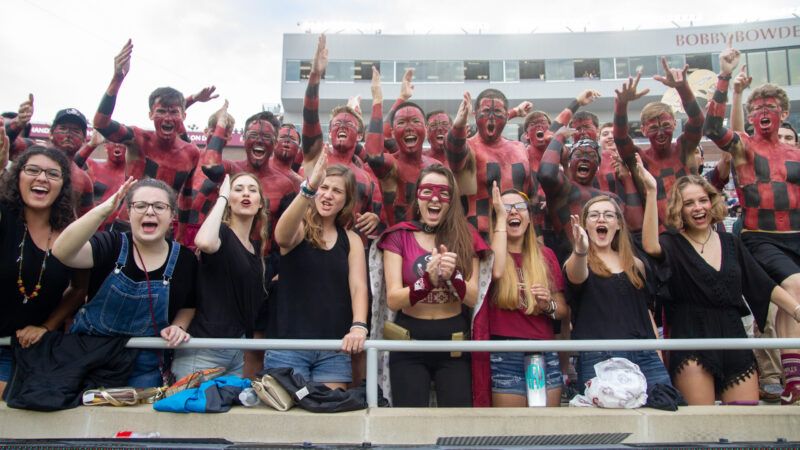Some Universities, Even Public Ones, Actually Support Free Speech
But most do not.

The Foundation for Individual Rights in Education (FIRE) has released its annual college free speech rankings. This is the largest survey of campus free speech, reaching 37,000 students from the nation's top 159 colleges and universities; it assesses each school's speech climate across seven aspects: perceived comfort in speaking one's mind publicly, soundness of the speech code, reported levels of self-censorship, tolerance for liberal speakers, tolerance for conservative speakers, levels of acceptance for disrupting campus speech, and ability to discuss challenging topics on campus.
Topping 2021's list is Claremont McKenna College, which has been celebrated for gracefully handling a controversial speech by the conservative journalist Heather Mac Donald and for launching an Open Academy Initiative intended to foster viewpoint diversity. In the poll, 54 percent of students report that their administration makes it "extremely" or "very" clear that they champion free speech.
"At higher ranking schools, the students felt the administration made their stance on free speech issues clear," says Sean Stevens, FIRE's senior research fellow of polling and analytics. "It's a testament to the power of strong leadership on the part of administrators." Finishing out the top five were the University of Chicago, the University of New Hampshire, Emory University, and Florida State University.
On the other side of the spectrum is Marquette University, which drew ire for attempting to revoke Prof. John McAdams' tenure and to terminate him. (McAdams ultimately was reinstated after prevailing in court.) At Marquette, fewer than one in five students feel their school clearly upholds free speech. Also in the bottom five are Rensselaer Polytechnic Institute, Boston College, Louisiana State University, and DePauw University.
FIRE Executive Director Robert Shibley says prospective students can use the rankings to find out which schools value free expression and open debate. Meanwhile, the polling provides an up-to-date snapshot of the state of free expression on campuses nationwide.
One major trend is rising hostility towards controversial speakers on campus. Two thirds of students say shouting down speakers is at least sometimes acceptable, up 4 percent from last year; 23 percent believe using violence to stop certain speech is acceptable, up from 18 percent in 2020. The two schools at which violence is considered most tolerable are Wellesley College and Barnard College, both elite women's institutions, who polled at 45 percent and 43 percent, respectively. According to the survey, conservative speakers face greater potential blowback.
Students also express trepidation in controversial conversation, with only 48 percent reporting that they feel comfortable expressing views on contentious issues during in-class discussions. In 2021, students were most apprehensive to discuss racial inequality, abortion, gun control, the George Floyd protests, and transgender issues.
"The value of higher education comes from developing a fuller understanding of the world by asking questions that challenge the status quo," says Adam Goldstein, FIRE's senior research counsel. "A college that won't clearly protect your right to ask those questions is a bad idea, even if it boasts small class sizes or a fancy stadium."
Merely one in three students nationwide say their administration makes it very or extremely clear that their speech is protected on campus. More than 80 percent of college students admitted to self-censoring, with 21 percent saying they do so often.
Such levels of illiberalism are intolerable in a higher education. The university campus is supposed to serve as a colosseum in the battle of ideas, not a place where students are conditioned to bite their tongues.


Show Comments (49)